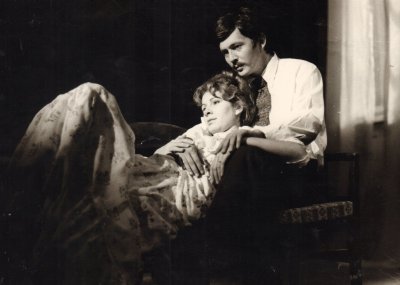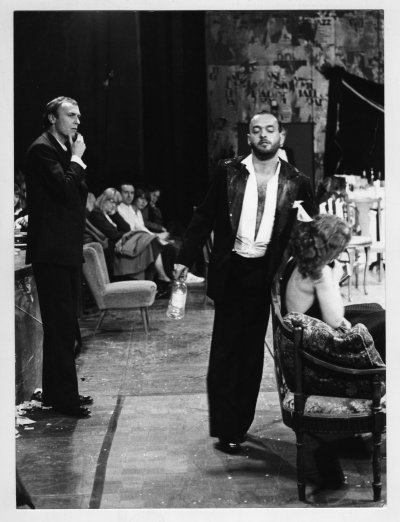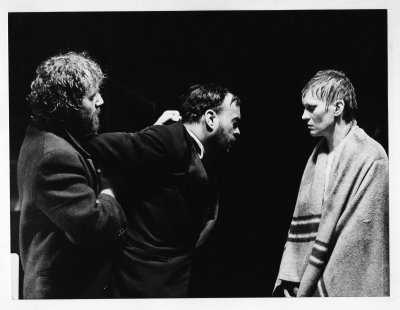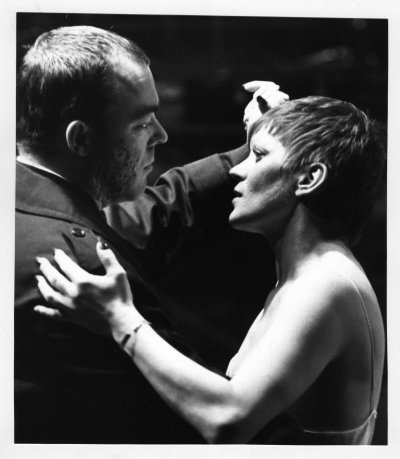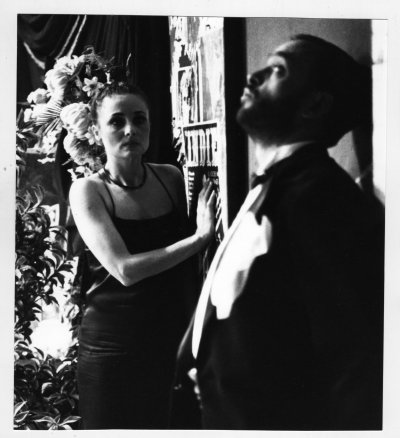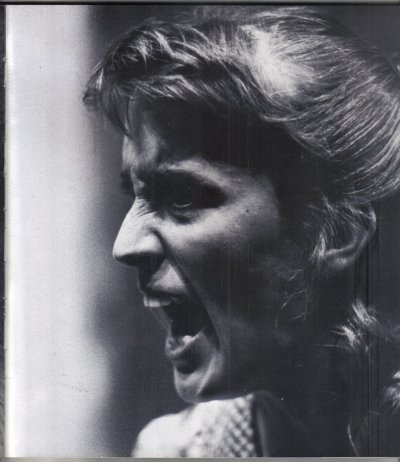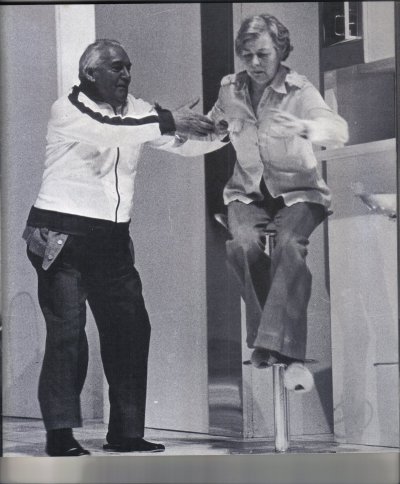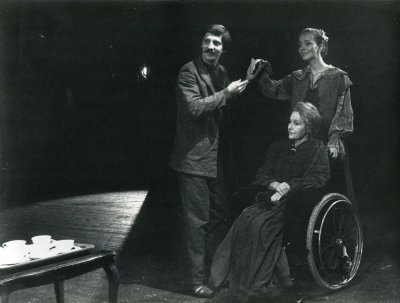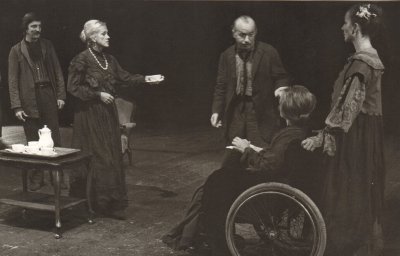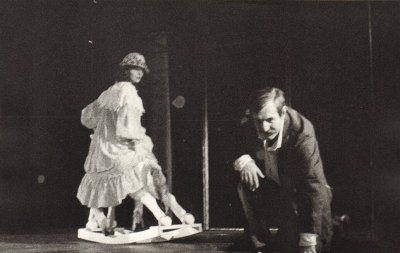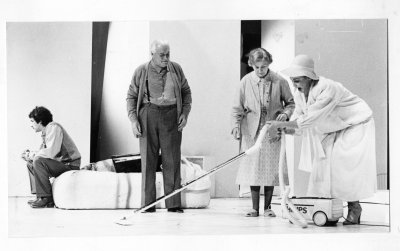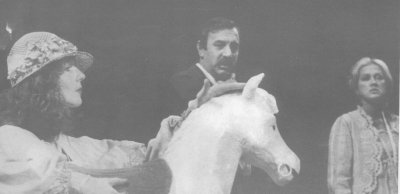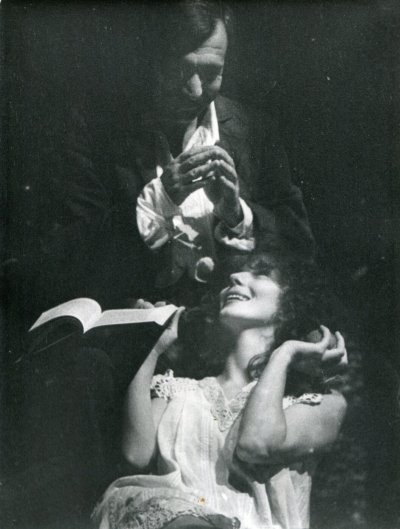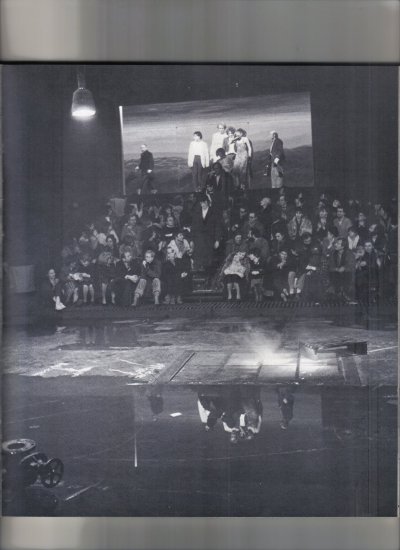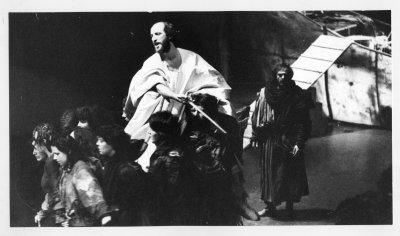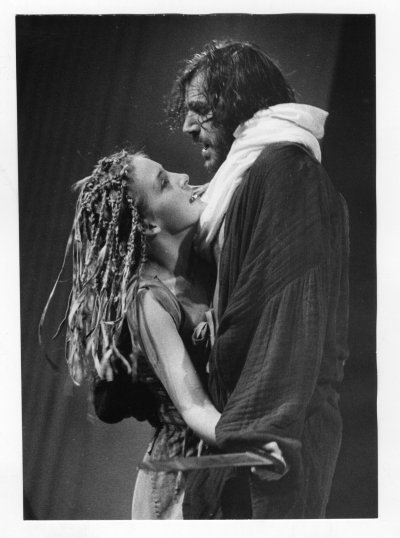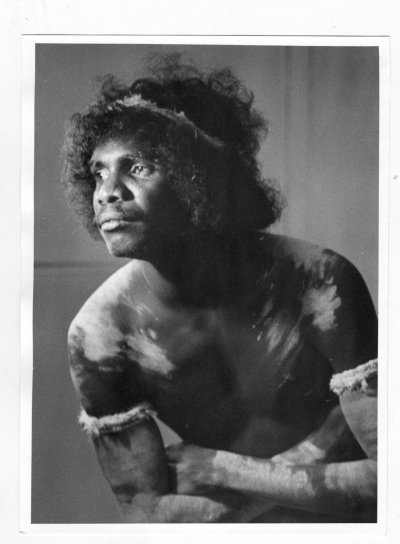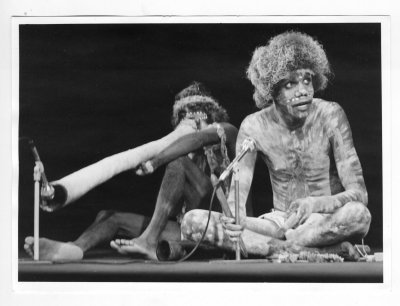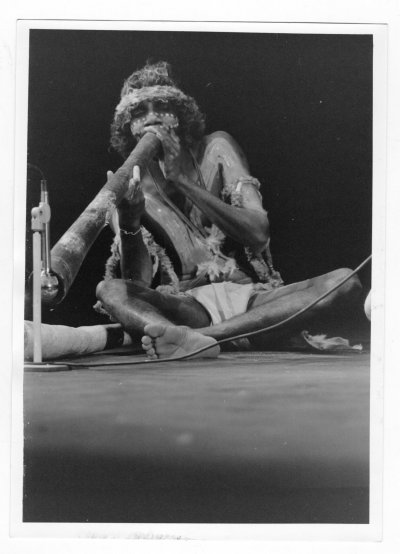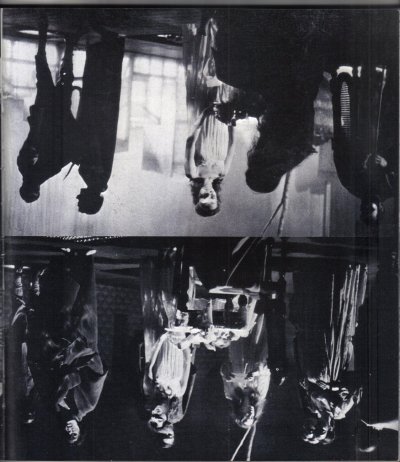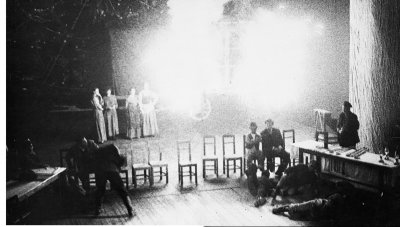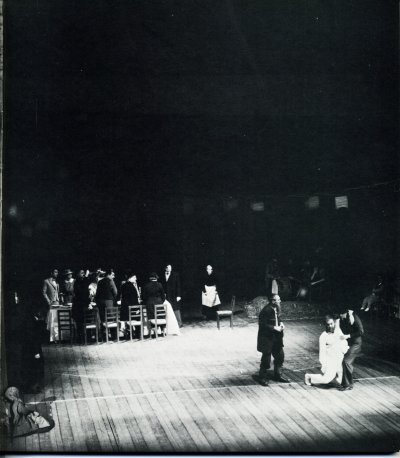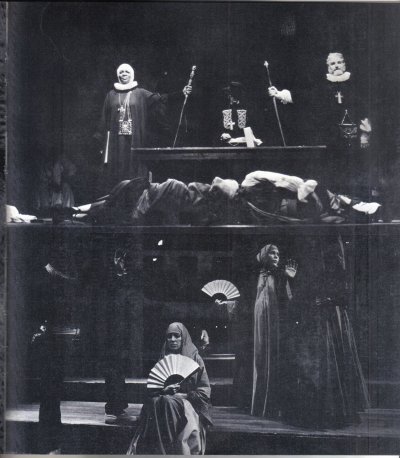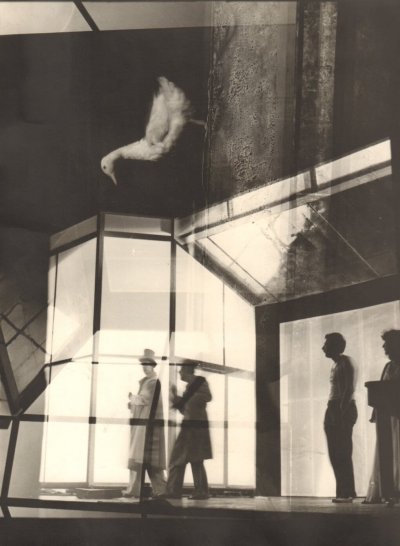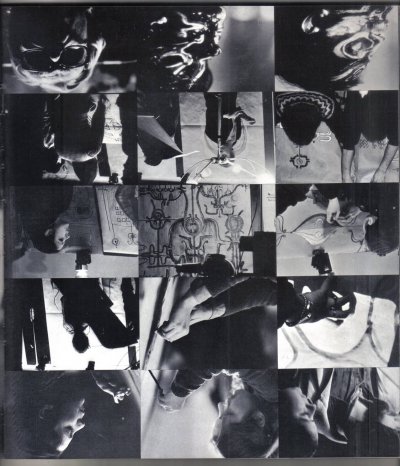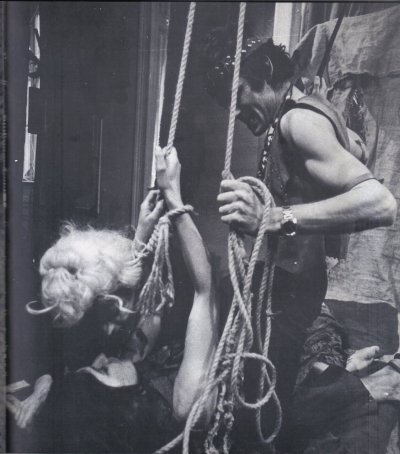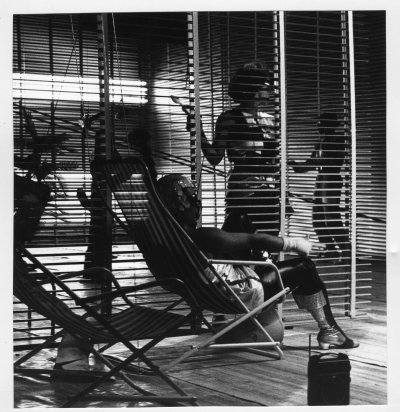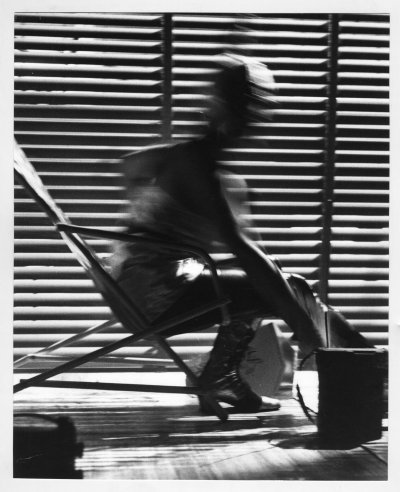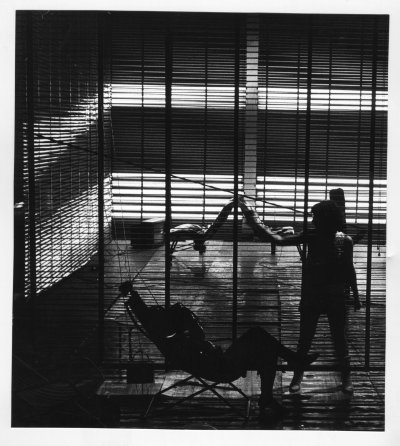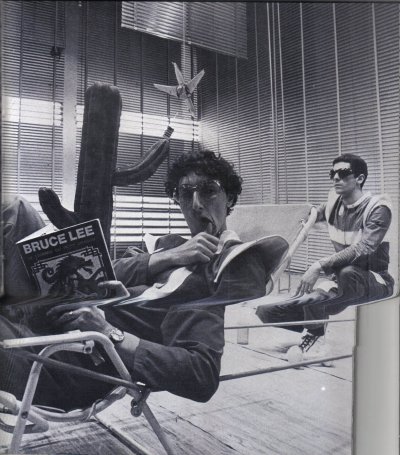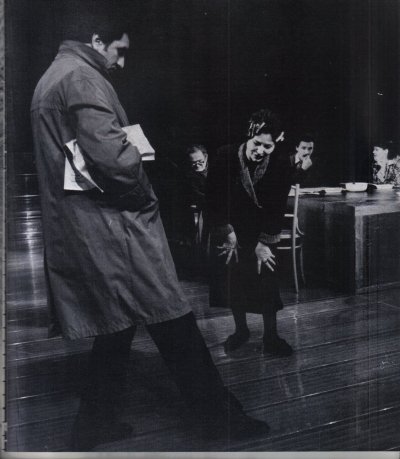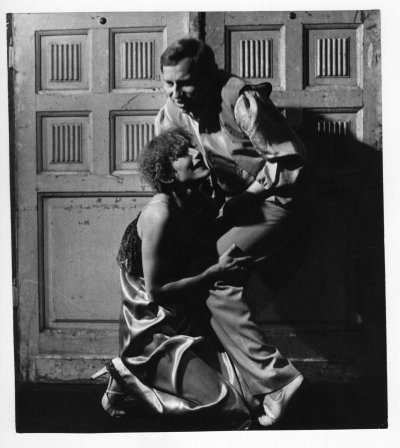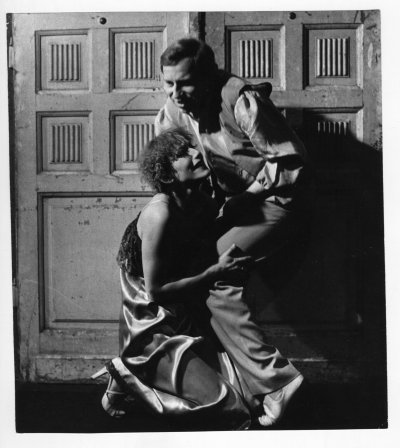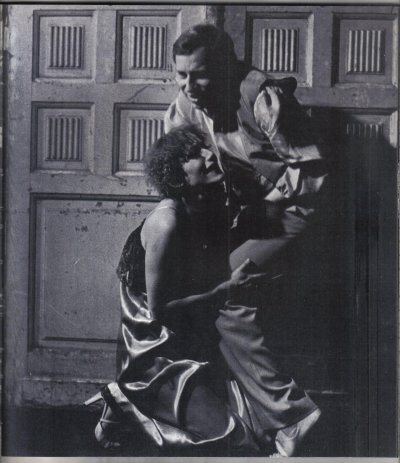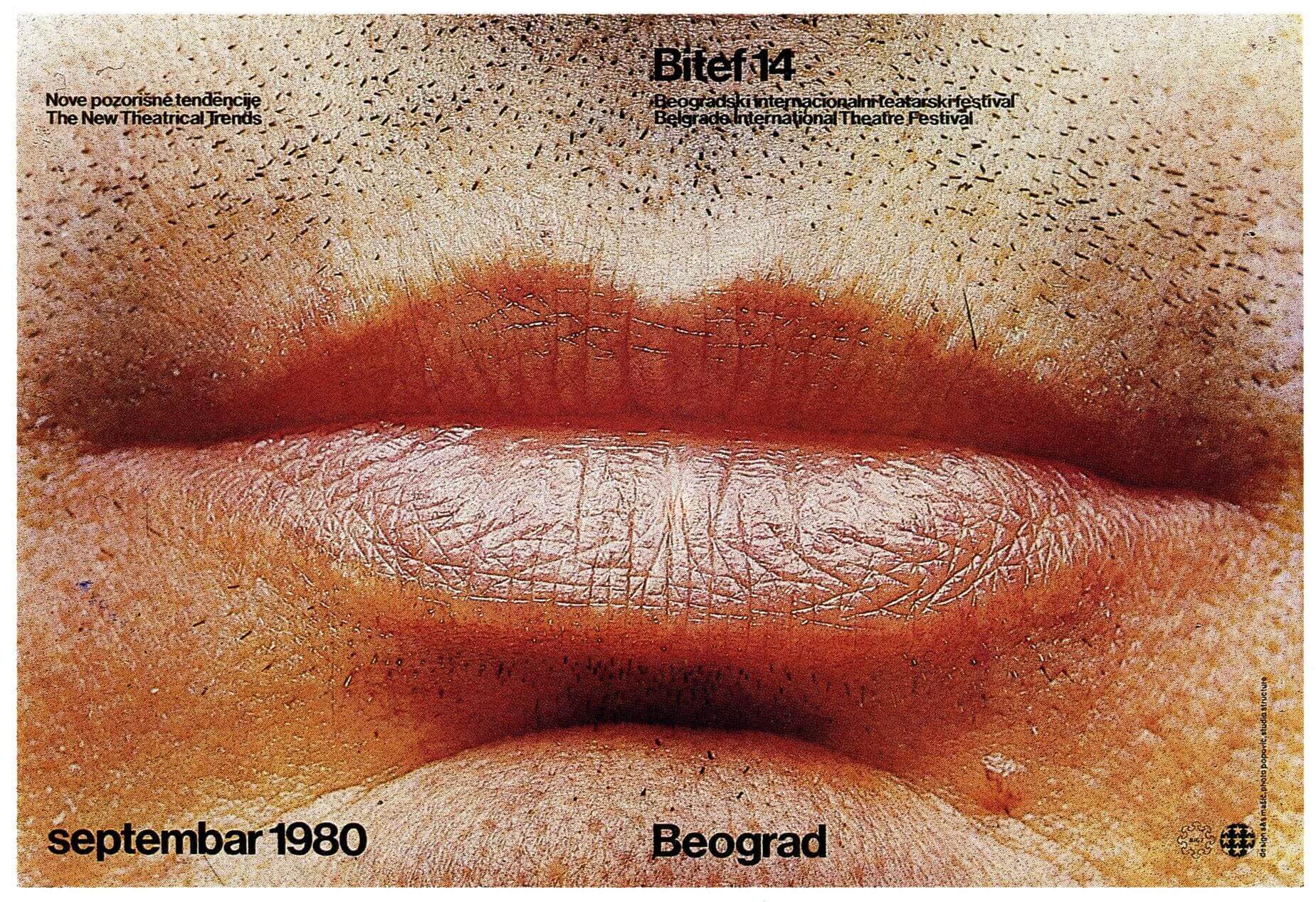
Dizajn / Design: Saveta Mašić / Slobodan Mašić (1939-2016)
IZMEĐU REALIZMA I APSTRAKCIJE 1980
Da li verovati u dramski tekst ili smatrati dramsku reč samo povodom za pozorišnu predstavu – dilema je koja se u pozorištu postavila sa ovim vekom.
Opredeljujući se za jednu ili drugu stranu, pozorišni stvaraoci, pozorišta i celokupni pokreti rešavali su svoju sudbinu i mesto u istoriji modernog pozorišta. Ovogodišnji BITEF izuzetno jasno odražava ovu polarizaciju.
Prethodnih godina na BITEFU su često bila zastupljena pozorišta koja veruju u sopstvene snage, a tekst smatraju samo povodom za umetničku nadgradnju. Međutim, desilo se da se poslednjih sezona, kao nova tendencija, na horizontu pojavio jedan novi vid realističke drame. Međutim, ma kakav taj vid realističke drame bio, ona je gotovo bez izuzetka u istoriji drame i socijalna drama. 14. BITEF je dao prostora toj novoj tendenciji.
Pozorišta na 14. BITEFU koja dramsku reč smatraju pre svega povodom za umetnički čin – u najboljoj tradiciji Artauda, Mejerholjda i Tairova – na prvi pogled kao da su samo stilske varijacije na temu kojom se bave.
Dublje pronicanje u njihove namere i rezultat otkrivaju filozofski, estetički i antropološki smisao njihovog poduhvata. Otkrivanje tog dubljeg smisla složen je proces i zavisi od posmatrača. Tako gledaocima ostaje da ispitaju ili osete šta je ove, 1980. godine, doneo pozorišnoj umetnosti sveta slobodan, nesvakidašnji odnos reditelja i pisaca kad su se sreli: Philippe Adrien i Witkacy, Tamas Fodor i Jean Genet, Klaus Peymann i Goethe, Ciulli i Euripid, Berta Martinez i Lorca. Dušan Jovanović i Sčiller, Ljubiša Ristić i Šakespeare ili grupa italijanskih umetnika i tekstovi science-fiction literature. Pri tom je karakteristično da pozorišta u svetu sve manje vode računa o tome iz koje nacionalne sredine uzimaju tekstove: tako, na 14. BITEFU Mađari prikazuju Francuza, Francuzi – Poljaka, Poljaci – Rusa, Jugosloveni – Engleza, Rusa i Nemca, a Nemci – klasičnog Grka.
Već četrnaest godina na svakom BITEFU pojavljuje se bar jedno pozorište iz neke zemlje koja do sada nije bila zastupljena na beogradskom internacionalnom teatarskom festivalu – ove godine to
su Zair i Kuba.
Osim dramskih predstava na 14. BITEFU, studenti četvrte godine Arhitektonskog fakulteta, pod mentorstvom Bogdana Bogdanovića, prikazaće jednu fazu studijskog programa – simbolične forme grad Rabut doline, koji se dodiruje sa scenskom umetnošću, ali ipak ostaje u sferi onog što istražuje.
Mira Trailović i Jovan Ćirilov
BETWEEN REALISM AND APSTRACTION 1980
Should one have faith in the text of dramas or should one consider the words of a drama merely as a motive for a theatre performance is a dilemma whichpresented itself this century. Opting, in the face of the dilemma, for one or the other, theatre creators, theatres and entire movements, defined their fate and their place in the history of modern theatre. This year’s BITEF reflects this polarization more than ever before.
In past years theatres which believed in their own force, considering the text merely a motive for an artistic act, were frequently represented at BITEF.
However, during the last few seasons, a special kind of realistic drama appeared on the horizon, which is, almost without exception, in the history of theatre, a social drama too. The return to social themes is characteristic for the realistic dramas at 14th BITEF.
Theatres at the 14th BITEF, which consider the dramatic word above all a motive for an artistic act in the best tradition of Artaud, Meyerhold and Tairov at first glance appear to deal only in stylistic variations. A deeper penetration into their intentions and their results, reveal a philosophycal, aesthetic and antropological sense of their undertaking. The revelation of this deeper sense is a complex process and depends of the viewer. This it is up to the public to analyse or feel what in this year of 1980, was brough to the theatre artistic world of the free, unusual and in any case a complex relation between the director and the author, when Philippe Adrien and Witkacy, Tamás Fodor and Jean Ganet, Klaus Peymann and Goethe, Ciulli and Euripides, Berta Martinez and Garda Lorca, Dušan Jovanović and Schiller, Ljubisa Ristić and Shakespeare or the group of italian artists, gathered aroung the magazzini criminali periodical, and science fiction literature texts, meet each other.
At the same time it is characteristic that the theatres in the world pay increasingly less attention as to the nationality the texts orignate from, thus at the 14th BITEF, the Hungarians play a French, the French a Polish, the Polish a Russian, the Yugoslavs an Englishman, a Russian and a German, and the Germans a classic Greek.
For fourteen years now, at every BITEF at least one theatre appeared from a country which had not been represented previously at the Belgrade International Theatre Festival. This year these are Zair and Cuba.
In addition to plays to be presented at the 14th BITEF, students of the forth year of the architectural faculty, under the guidence of Bogdan Bogdanović, will present a phase of the study programé of symbolic “From Rabut Valley Town”, which touches scenic art, but still remains within the sphere of what it researches.
Mira Trailović and Jovan Ćirilov
Glavni program / Main Programme
218 Hrvatsko Narodno Kazalište (Split, Jugoslavija); V. Šekspir: Hamlet; režija: Ljubiša Ristić / Hrvatsko Narodno Kazalište (Split, Yugoslavia); W. Shakespeare: Hamlet; direction: Ljubiša Ristić
219 Théâtre de la commune D’Aubervillers (Pariz, Francuska); Stanislav Vitkijevič: Vodena koka; režija: Filip Adrien / Théâtre de la commune D’Aubervillers (Paris, France); Stanisław Ignacy Witkiewicz: Kurka Wodna (La poule d’ eau / The Water Hen); direction: Philippe Adrien
220 Atelje 212 (Beograd, Jugoslavija); Velimir Lukić: Santa Maria della Salute; režija: Nikola Jevtić / Atelje 212 (Belgrade, Yugoslavia); Velimir Lukić: Santa Maria della Salute (Saint Mary of Health); direction: Nikola Jevtić
221 Þjóðleikhúsið / Thjođlekhusiđ (Rejkjavik, Island); Gudmundur Štajnson: Kratak predah; režija: Stefan Baldurson / Þjóðleikhúsið (The National Theatre of Iceland, Reykjavik, Iceland); Gudmundur Steinsson: Stundarfriður (A Brief Respite); direction: Stefan Baldursson
222 Actors Theatre of Louisville (Lujvil, Sjedinjene Američke Države); Marša Norman: Izlazak; režija: Džon Džori / Actors Theatre of Louisville (Louisville, United States of America); Marsha Norman: Getting-Out; direction: Jon Jory
223 Düsseldorfer Schauspielhaus (Diseldorf, Savezna Republika Nemačka); Roberto Ćuli, Helmut Šefer: Alkestida (Alkestis) – po Euripidu; režija: Roberto Ćuli / Düsseldorfer Schauspielhaus (Düsseldorf, Federal Republic of Germany); Roberto Ciulli, Helmut Schäfer: Alkestis – nach Euripides (Alkestis – based on Euripides); direction: Roberto Ciulli
224 Narodno pozorište (Sombor, Jugoslavija); Laza Lazarević: Švabica; režija: Miloš Lazin / National Theatre (Sombor, Yugoslavia); Laza Lazarević: Švabica (The German Girl); direction: Miloš Lazin
225 Stary Teatr (Krakov, Poljska); Deset portreta na fonu „Galeba“ – po A. P. Čehovu; režija: Ježi Gžegoževski / Stary Teatr (Krakow, Poland); Dziesiec potretów z „Czajka“ – based on A. P. Chekhov (Ten Portraits with a Seagull in the Background after Anton Chekhov / Анто́н Па́влович Че́хов); direction: Jerzy Grzegorzewski
226 Dramski Teatar Skopje (Skoplje, Jugoslavija); Goran Stefanovski: Divlje meso; režija: Slobodan Unkovski / Dramski TeatarSkopje (Skopje, Yugoslavia); Goran Stefanovski: Divo meso (Wild Meat); direction: Slobodan Unkovski
227 Il Carrozzone, Magazzini Criminali (Firenca, Italija); Federiko Tjeci: Nervni slom; režija: Federiko Tjeci, Marion D’Amburgo, Sandro Lombardi / Il Carrozzone, Magazzini Criminali (Firenca, Italy); Federico Tiezzi: Crollo nervoso (Nervous Breakdown); direction: Federico Tiezzi, Marion D’Amburgo, Sandro Lombardi
228 Stúdió K Színház (Budimpešta, Mađarska); Žan Žene: Balkon; režija: Tamaš Fedor / Stúdió K Színház (Budapest, Hungary); Jean Genet: Balkon (The Balcony); direction: Tamás Fodor
229 Arhitektonski Fakultet – grupa studenata četvrte godine (Beograd, Jugoslavija); Grad Rabut Doline; mentor: Bogdan Bogdanović / Faculty of Architecture – a group of students of the fourth year (Belgrade, Yugoslavia); From Rabut Valley Town; mentor: Bogdan Bogdanović
230 Narodno pozorište (Niš, Jugoslavija); Aleksandar Popović: Uvek zeleno; režija: Zlatko Sviben / National Theatre (Niš, Yugoslavia); Aleksandar Popović: Uvek zeleno (Evergreen); direction: Zlatko Sviben
231 Schaubühne am Hallischen Ufer (Zapadni Berlin, Nemačka); Ernst Jandl: Iz tuđine; režija: Elen Hamer (Grand Prix) / Schaubühne am Hallischen Ufer (West Berlin, Federal Republic of Germany); Ernst Jandl: Aus der Fremde (From Abroad); direction: Ellen Hammer (Grand Prix)
232 Teatro Estudio (Havana, Kuba); Federiko Garsija Lorka: Krvave svadbe; režija: Berta Martines / Teatro Estudio (Habana, Cuba); Federico García Lorca: Bodas de Sangre (Blood Wedding); direction: Berta Rosa Martínez López (Berta Martinez)
233 Jugoslovensko dramsko pozorište (Beograd, Jugoslavija); Isak Babelj: Sumrak; režija: Ježi Jarocki (Nagrada Politike) / Yugoslav Drama Theatre (Belgrade, Yugoslavia); Исаак Эммануилович Бабель (Isaac Babel): Sumrak (Sunset); direction: Jerzy Jarocki (Politika Award)
234 Mestno Gledališče (Ljubljana, Jugoslavija); Fridrih Šiler: Spletka i ljubav; režija: Dušan Jovanović / City Theatre (Ljubljana, Yugoslavia); Friedrich Schiller: Spletka i ljubav (Kabale und Liebe / Intrigue and Love); direction: Dušan Jovanović
235 Aboriginal Dance of Arnham Land (Australija); Starosedeoci; koreografija: Djoli Laivanga (Specijalna nagrada) / Aboriginal Dance of Arnham Land (Australia): Aboriginals; choreography: Djoli Laiwanga (Special Award)
Your Content Goes Here
